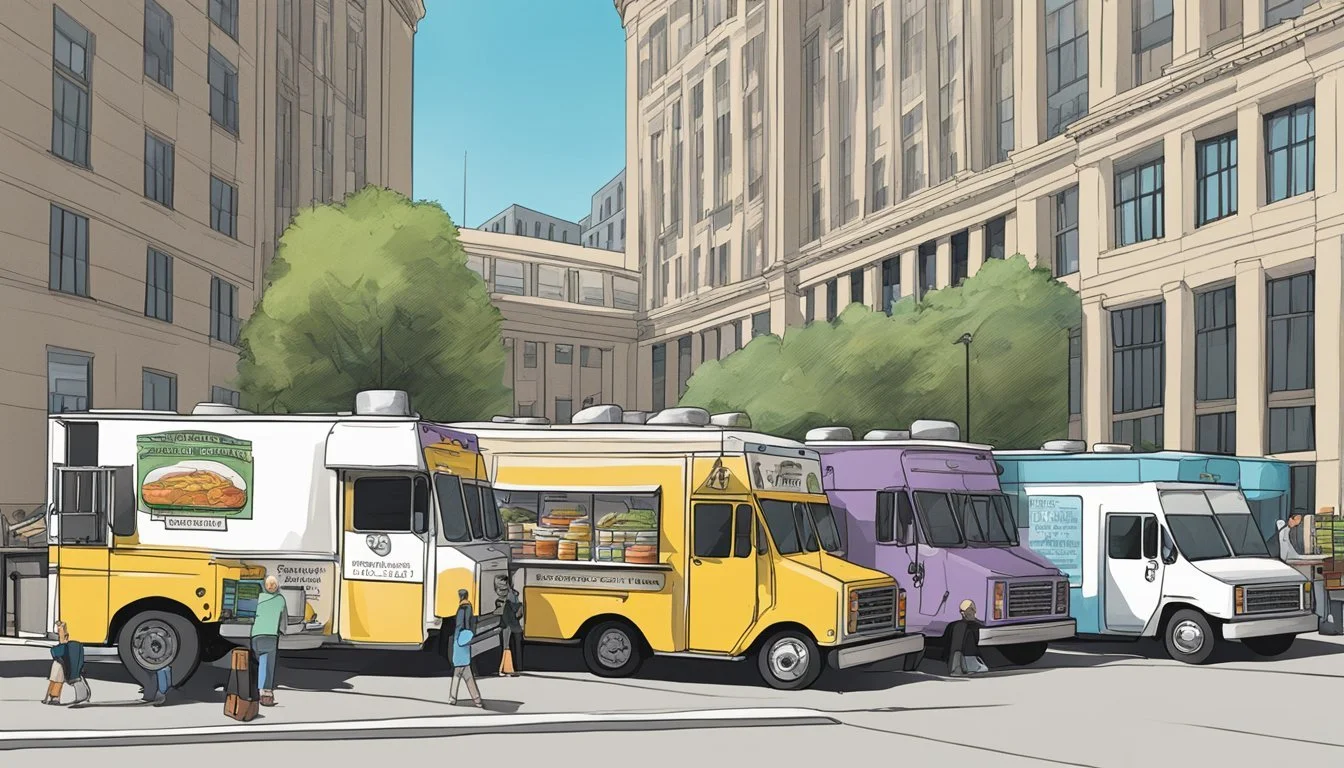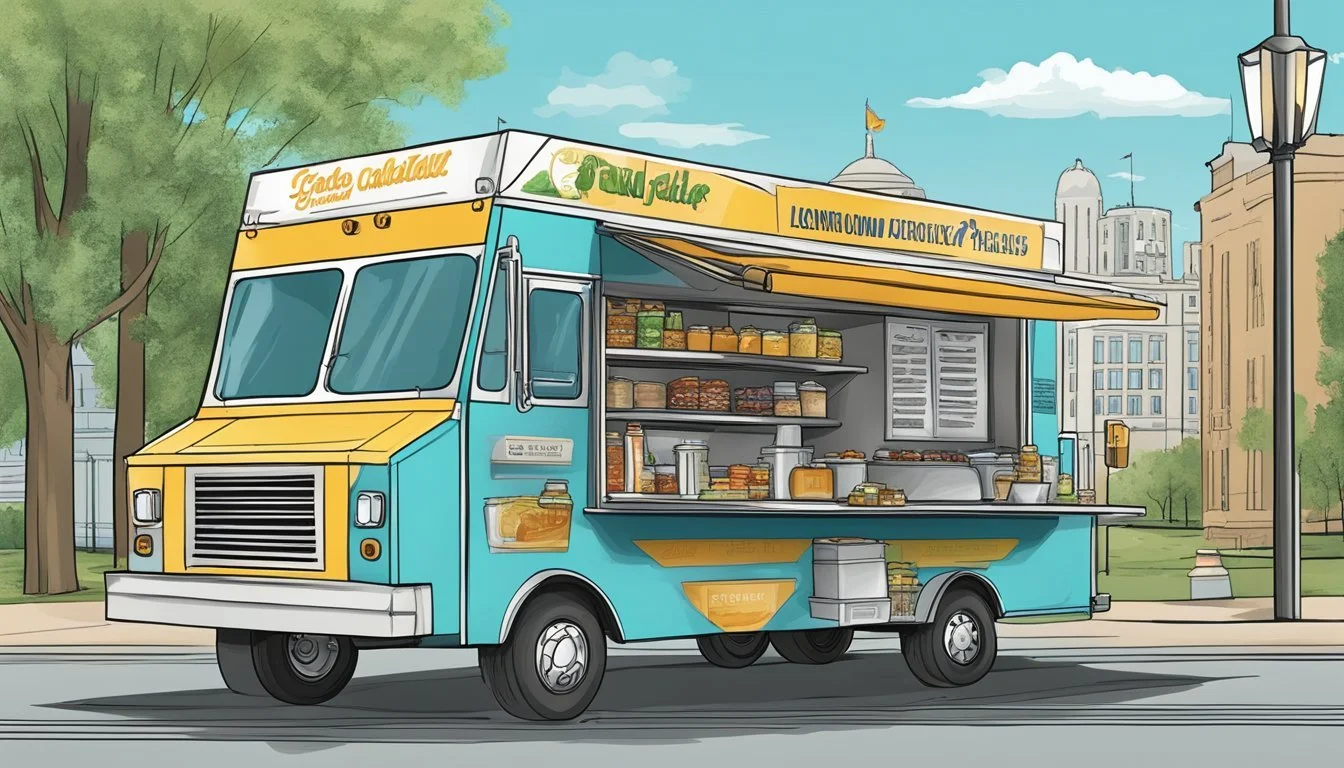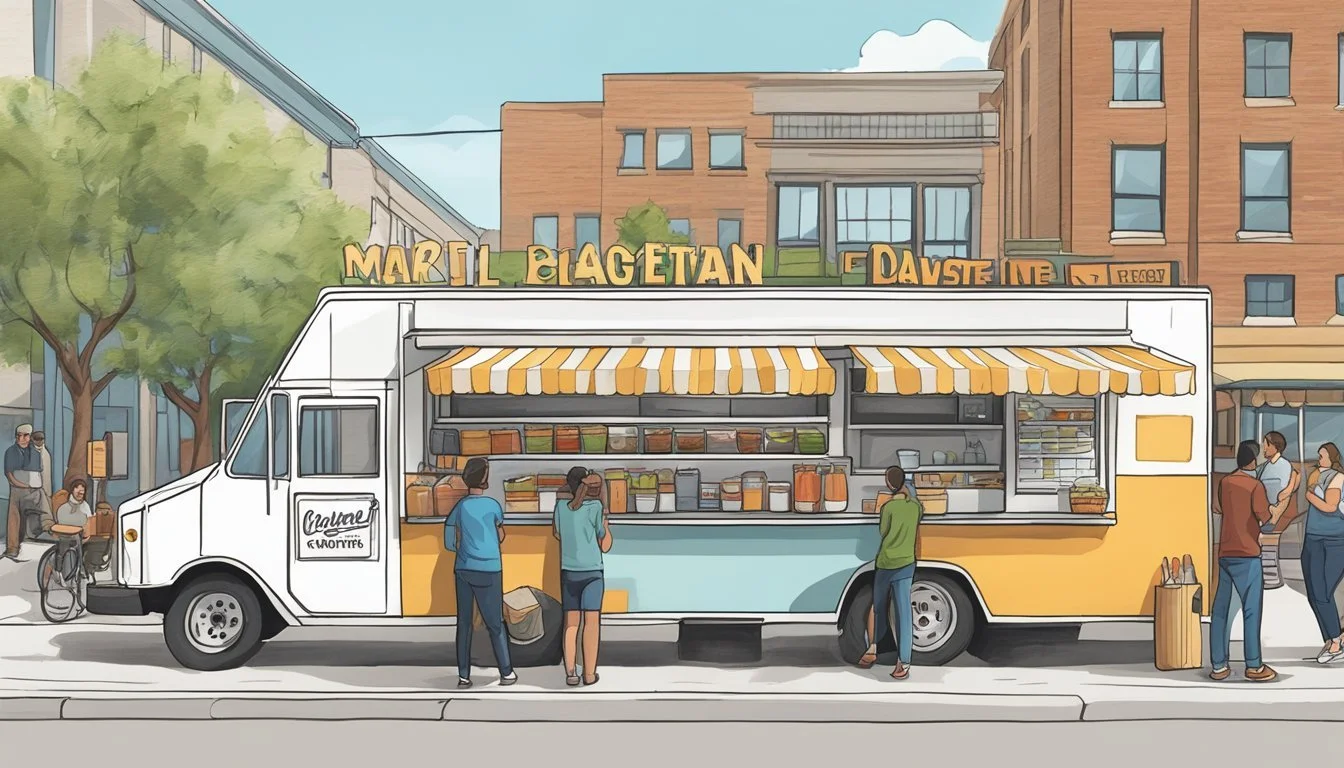Food Truck Laws in North Dakota
Your Essential Guide to Compliance
Venturing into the food truck business in North Dakota offers an exciting opportunity for entrepreneurs. To operate successfully, it is imperative to navigate the specific legal framework laid out by the state. These laws and regulations are put in place to ensure public safety, fair competition, and compliance with health standards. Understanding these directives thoroughly provides a solid foundation for food truck operators to build their business upon.
In North Dakota, food trucks are subject to a series of required licenses and permits, each corresponding to various aspects of operating a mobile food establishment. These may include health department permits, food handler training certifications, and compliance with local food safety ordinances. These guidelines are designed to maintain the integrity of food services provided to the public, outlining the proper handling, storage, and preparation of food.
Remaining abreast of these regulations not only aids in establishing a food truck that adheres to legal standards but also fosters trust with customers. Operators who comprehend and follow the food truck laws in North Dakota can focus on creating a dynamic menu and delivering quality service, cornerstones of a prosperous mobile food business.
Getting Started
When launching a food truck in North Dakota, it is crucial for entrepreneurs to navigate the legal framework, select an appropriate business structure, and devise a comprehensive business plan.
Understanding Local Laws and Regulations
Every food truck owner must adhere to the North Dakota Food Code which encompasses regulations for mobile and temporary food units. Regulations include food handling, safety requirements, and licensing specifics, effective from January 1, 2024. Familiarity with these statewide licensed mobile food units rules is fundamental in ensuring compliance and smooth operation.
Choosing a Business Structure
Selecting the right business structure impacts legal liability, taxation, and operational flexibility. Food truck entrepreneurs can opt for a sole proprietorship, a simple structure with direct control, yet with personal liability. Forming an LLC (Limited Liability Company) is a popular choice for its limited liability protection, while a partnership is ideal for shared ownerships. Alternatively, establishing a corporation could provide additional benefits and complexities such as increased regulatory requirements and potential tax advantages.
Creating a Business Plan for Your Food Truck
A solid food truck business plan is essential for guiding the business to success. It should outline objectives, market analysis, menu offerings, marketing strategies, and financial projections. A thorough plan serves as a roadmap for the business and is often required when seeking funding.
Remember, meticulous planning and understanding of regulations underpin a prosperous North Dakota food truck venture.
Licensing and Permit Requirements
In North Dakota, food truck owners must navigate through several regulatory steps to ensure their business operates in compliance with state law. From obtaining a business license to meeting health and safety standards, each permit plays a crucial role in the legitimacy and smooth operation of a food truck.
Securing a Business License
To operate a food truck in North Dakota, one must first obtain a business license through the North Dakota Secretary of State. This vital credential serves as the legal foundation for the business. Owners must ensure they have an employer identification number (EIN), often essential for the business license application and future tax purposes.
Food Truck Permits and Health Department Approvals
Following the acquisition of a business license, food truck operators must seek various permits. This includes a food handlers license to prove staff are trained in proper food safety practices. The North Dakota Department of Health requires an inspection of the food truck to ensure compliance with health and safety regulations before food can be served to the public.
State-Specific Permits and Licenses
Some events may necessitate a special event permit, especially when operating temporarily at fairs, festivals, or markets. Food truck owners should also consult the SBA License and Permits portal for any additional state-specific permits necessary for their mobile food establishment. Each permit and approval layers to form a comprehensive regulatory compliance, upholding public health standards and business legitimacy.
Operational Guidelines for Food Trucks
In North Dakota, food truck operators are required to adhere to stringent guidelines that ensure the safety and quality of food served to the public. These include food handling protocols, adhering to vehicle and equipment standards, and undergoing regular inspections for compliance.
Food Safety and Handling
Food trucks must follow specific food safety and handling procedures to maintain hygiene and prevent contamination. Every employee involved in food service is required to complete a food safety training program, such as ServSafe, and at least one individual on the truck must have a Food Protection Manager Certification. Strict handwashing protocols must be in place to ensure that all staff regularly wash their hands with soap and water, facilitated by a dedicated handwashing station within the truck.
Equipment and Vehicle Specifications
The vehicle must be equipped with all necessary equipment to store, prepare, and serve food safely. This includes proper refrigeration units to keep perishables at safe temperatures and hot holding equipment for maintaining warmth. All equipment should meet the North Dakota Health and Safety Code and include a certified fire suppression system to address any potential fire hazards. Additionally, the physical specifications of the vehicle itself must comply with local regulations, which may dictate the size and mobility of the unit.
Inspection and Compliance
Regular inspection is mandatory for all food trucks operating in North Dakota. Compliance with local health codes is verified through these inspections, ensuring that all operational guidelines for food safety and equipment usage are being followed. The inspection process also includes checking for cleanliness and proper waste disposal, alongside verifying that all necessary permits and licenses are current and visible to the public. Failure to comply with any of these guidelines may result in fines or revocation of the food truck's operation license.
Financial Management
In managing a food truck in North Dakota, owners must account for various financial responsibilities. From initial and ongoing costs to compliance with sales tax and securing appropriate insurance, financial management is critical for legality and profitability.
Understanding Costs and Funding
Food truck operators should identify all potential costs associated with the business. Costs include a security deposit, purchase or lease of a vehicle, kitchen equipment, and inventory. Additionally, there are costs for permits and licenses, such as a Food Handler Training fee. Funding can take several avenues, from business loans to personal savings or even crowdsource funding initiatives. Considering the gamut of expenses is the first step towards sustainable financial management.
Managing Revenue and Sales Tax
All food truck owners must register their business with the North Dakota Secretary of State and obtain a sales tax permit. This allows them to legally collect and remit sales tax. Regular maintenance of sales records is mandatory for accurate tax filings. It's important for operators to keep a hawk's eye on their revenue streams, which entails cataloging daily sales, catering event incomes, and other sources of revenue.
Insurance and Liability Coverage
A food truck business necessitates the safeguarding of assets and mitigation of risks through insurance coverage. Securing comprehensive liability insurance not only protects the business from potential lawsuits but often is a legal requirement. Coverage should include property damage, employee-related risks, and third-party liability. Periodic review of the policy ensures protection levels remain aligned with any changes in the business operations or state regulations.
Day-to-Day Operations
Operating a food truck in North Dakota requires diligent management of the food preparation process, a focus on creating a positive customer experience, and maintaining robust health and safety practices to ensure the safety of both employees and patrons.
Food Preparation and Service
Food trucks must abide by the North Dakota Food Code, with strict guidelines for food handling to prevent contamination. Cooking should be timed precisely to meet demand while ensuring food safety. This includes temperature controls, cross-contamination prevention, and maintaining sanitary conditions. Menus should be designed keeping in mind the limit of the truck's kitchen space and the efficiency of service.
Customer Relations and Experience
Customer interactions should be professional and courteous to foster repeat business. Managing the service line efficiently reduces wait times and increases customer satisfaction. Food trucks also have the opportunity to enhance the customer experience by providing clear menus, transparent pricing, and a clean dining environment. Engaging with customers on social media can also contribute positively to their overall experience.
Maintaining Workplace Health and Safety
Food trucks must comply with OSHA regulations related to workplace safety and have procedures in place for dealing with workplace accidents and preventing workplace illnesses. Each food employee should have a valid health permit and be trained in proper food handling techniques. Regularly scheduled cleanings and inspections help to manage worker safety and food safety concurrently, ensuring a healthy environment for both employees and patrons.
Marketing and Growth Strategy
To successfully expand a food truck business in North Dakota, owners need ingenuity in their marketing approaches and consistency in brand messaging. Strategies should be tailored to local markets, leveraging the state's lively festival scene and growing appetite for diverse food and beverage options.
Developing a Marketing Strategy
A robust marketing strategy is crucial. It should detail how the food truck will reach its target market, including where and when to disseminate promotional materials. Contact information and the food truck's address should be prominently featured. For instance, targeted social media campaigns can draw a digital crowd, while strategic partnerships with local businesses can increase physical footfall.
Planning and Flexibility: Planning ahead for busy periods, such as holidays or peak tourist seasons, ensures readiness. However, operational flexibility allows the truck to pivot as market dynamics change.
Building a Brand and Customer Loyalty
Cultivating a strong brand is about more than logo design; it's about creating an experience that resonates with customers. Branding efforts should encapsulate a food truck's ethos and aesthetic, making it distinctive and memorable.
Customer Engagement: Maintain active engagement with patrons through social media, a mailing list, or a loyalty program. Personal touches like remembering regulars' favorite orders can foster a loyal following.
Participation in Events and Festivals
Being a part of local events and festivals introduces the food truck to new customers and markets. These gatherings are instrumental in giving exposure and should be a significant component of the marketing strategy.
Food and Beverage Diversity: Offering a menu that includes diverse and festival-friendly options can help to stand out in a crowded event space.
Tactical Presence: Selection of events should align with the truck's brand and the interests of its target demographic.
By implementing these strategies with a focus on clarity and customer engagement, a food truck business in North Dakota can position itself for growth and sustained success.
Additional Considerations
When running a food truck in North Dakota, certain aspects such as alcohol licensing, participating in temporary events, and adhering to local ordinances can extensively influence the operation. They determine the documents required and the health and safety standards that must be consistently upheld.
Alcohol Licensing
If a food truck in places like Williston intends to serve alcohol, obtaining a liquor license is essential. The process entails meeting North Dakota's stringent requirements which align with the FDA Food Code. It's a cost-effective strategy that enhances a mobile food unit's offerings, as it allows them to serve a wider variety of products beyond just food.
Mobile Food Vendors in Temporary Events
Participating in temporary events often requires mobile food vendors to possess temporary permits in addition to their regular licensing. These events have specific health and safety standards, and food trucks must be equipped with a commercial kitchen that upholds these requirements to ensure compliance.
Adhering to Local Ordinances
In North Dakota, each city, including Williston, may have unique local ordinances that affect food truck operation. This includes zoning laws, hours of operation, and waste disposal regulations. Mobile food vendors must familiarize themselves with these ordinances to operate legally and avoid potential fines.








